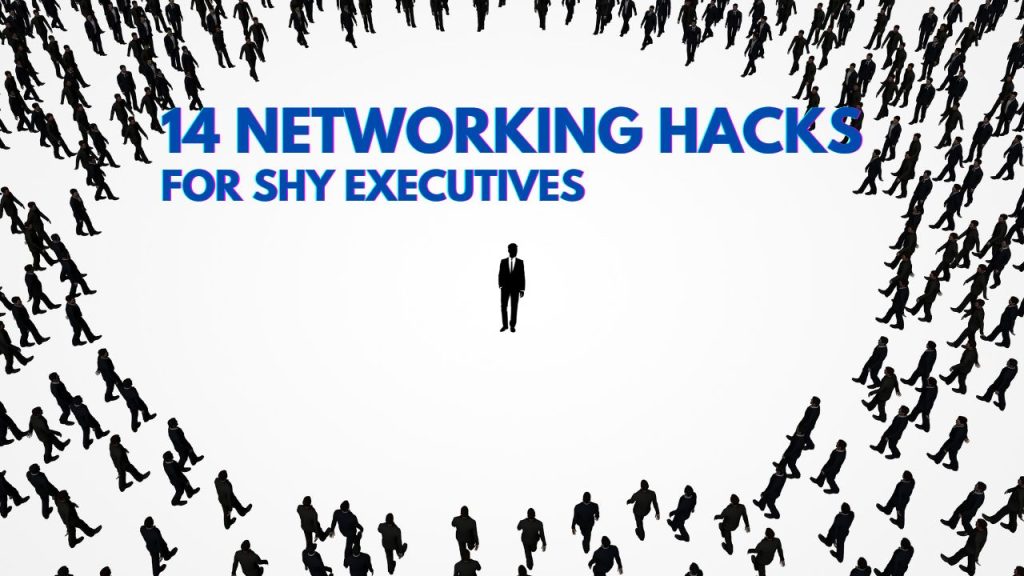Home » Uncategorized » 14 Hacks for shy people to become better at networking
14 Hacks for shy people to become better at networking

“Success not just your net worth, it’s your network” – Coach Sam
Networking, in its essence, is the process of establishing and nurturing professional and personal relationships with others in your field or industry, as well as in related or broader sectors. It involves the exchange of information, ideas, and resources with the aim of mutual benefit. Effective networking is not merely about collecting contacts or making superficial connections; it is about building meaningful, reciprocal relationships that can evolve over time.
The purpose of networking can vary widely – from seeking career opportunities, advice, and mentorship, to finding potential clients, partners, or investors. It can take place in various settings, such as professional conferences, workshops, social media platforms, and informal gatherings. Networking enables individuals to gain insights into industry trends, develop new skills, enhance their visibility and reputation within their professional community, and open doors to new possibilities that might otherwise not be accessible through traditional avenues.
Moreover, networking is a critical component of professional growth and business development. It allows individuals to tap into a wealth of collective knowledge and experience, thereby facilitating problem-solving, innovation, and collaboration. For many, networking is an invaluable tool for career advancement and personal development, enabling them to navigate the complexities of their professional landscapes more effectively.
Some of the most renowned networkers in the world have been celebrated not just for their ability to build vast networks, but also for leveraging those networks to create significant impact in their fields or across industries. Here are a few notable examples:
- Richard Branson: The founder of the Virgin Group, Branson is known for his charismatic personality and his ability to connect with people from all walks of life. His networking skills have helped him build a global empire and maintain a strong presence across various industries.
- Oprah Winfrey: As a media mogul and philanthropist, Oprah Winfrey has created an extensive network of influential figures across entertainment, politics, and beyond. Her ability to form deep, meaningful connections has made her one of the most influential women in the world.
- Elon Musk: Known for his ventures such as SpaceX, Tesla, Inc., and Neuralink, Musk has used his network to recruit top talent and secure investments for his ambitious projects, impacting the tech, automotive, and space industries.
- Jack Ma: The founder of Alibaba Group, Ma has harnessed his networking skills to build one of the largest e-commerce platforms in the world, forging strategic partnerships and expanding his influence across global markets.
These individuals exemplify how effective networking can transcend mere connections, enabling leaders to achieve groundbreaking success, foster innovation, and initiate positive change on a global scale. Their networks serve as powerful tools for mobilising resources, sharing knowledge, and creating opportunities that drive forward their visions and goals.
Networking can be a challenge, especially for those who identify themselves as shy. However, with the right strategies, even the most reserved individuals can become effective networkers.
Here are 14 hacks tailored for shy people to improve their networking skills:
- Start Small: Begin with smaller, more intimate gatherings before diving into larger events. This can help build confidence in a less overwhelming environment.
- Prepare Conversation Starters: Having a list of go-to questions or topics can ease the anxiety of starting conversations. Focus on open-ended questions that encourage more than a yes-or-no answer.
- Focus on the Other Person: People love talking about themselves. Ask questions and show genuine interest in their answers. This takes the pressure off you to speak and helps you learn more about others.
- Practise Active Listening: Active listening not only makes the other person feel valued but also gives you more time to think about how to contribute to the conversation.
- Set Goals for Each Event: Before attending an event, set a few achievable goals, such as talking to at least three new people or exchanging contact information with at least one person. This gives you a clear purpose and can help motivate you.
- Use Online Platforms: Start networking online through platforms like LinkedIn. This allows you to think through your messages and interactions, which can be less intimidating than face-to-face conversations.
- Follow Up: After meeting someone new, follow up with a brief message mentioning something you discussed. This helps establish a connection and shows that you were paying attention.
- Seek Roles within Networking Events: Volunteer to be a part of the organizing team or take up a role that requires interaction, such as registration desk duty. Having a defined role can provide a natural way to start conversations.
- Join Interest-Based Groups: Engage with groups that align with your interests. It is easier to talk about topics you are passionate about, and you will meet people with similar interests.
- Practice, Practice, Practice: Like any skill, networking gets easier with practice. Don’t be too hard on yourself if every interaction isn’t perfect. Reflect on what went well and what could be improved after each event.
- Consider a Buddy System: Attend networking events with a friend or colleague. This can make the environment feel less daunting and give you a familiar person to interact with.
- Engage in Professional Development: Workshops and classes not only improve your skills but also offer networking opportunities in a more structured and less pressured environment.
- Mind Your Body Language: Practise open body language – smile, make eye contact, and avoid crossing your arms. This makes you appear more approachable.
- Prepare an Elevator Pitch: Have a short, prepared speech about yourself and your professional interests. This makes introducing yourself easier and ensures you convey what you want about your professional identity.
Summary:
Networking is a powerful skill & ability that improves over time with practice. Treat the initial discomfort we may feel as a step in the right direction. Each attempt you make to expand your comfort zone is one toward becoming a more confident and effective networker.
– By Coach Sam in Singapore
Comment: Is there any tip/hack that you have personally used in order to learn things quickly which has not been covered in this blog?
Let me know in the comment section below, I would love to hear your stories.
Share This Post, Choose Your Platform!
Categories
- Mental Resilience
- Emotional Resilience
- Financial Resilience
- Interpersonal Resilience
- Physical Resilience
